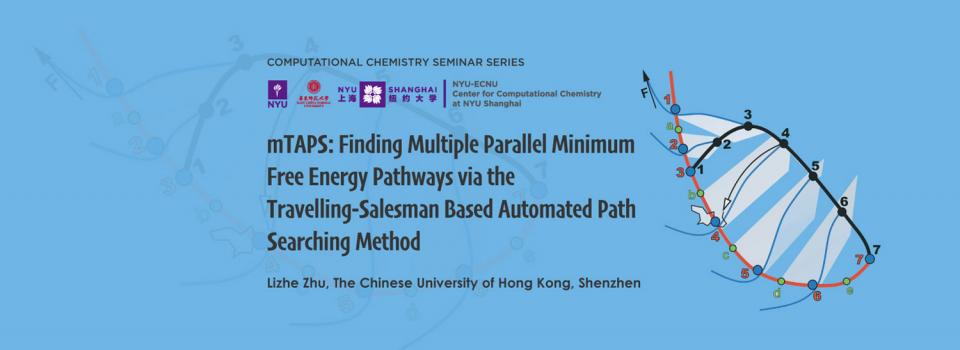
Abstract:
Finding the most probable path(s) connecting the functional conformational states is one of the major tasks of biomolecular simulations. Previously, we have introduced a Travelling-salesman based Automated Path Searching (TAPS) method that can locate a minimum free energy path closest to a given initial path with minimal prior knowledge of the system and higher efficiency than existing methods. However, for ultra-large biomolecules, their functional conformational changes typically occur through multiple pathways. To extend the applicability of TAPS to such scenario, we develop an implicit-solvent high-energy-parallel-cascade method (HePaCs). By iteratively performing implicit-solvent sampling from high energy samples and the conformations closest to the target state, HePaCs is efficient in obtaining multiple initial pathways. Multiple minimum free energy paths can then be located by optimizing these initial paths via TAPS in explicit solvents. We demonstrate that this combinatory approach can efficiently locate the three pathways for the conformational transition between the 310 helix and β-turn structure of the penta-peptide Met-enkephalin. To exemplify the applicability of this approach to large complex systems, we also discuss our latest work on finding the conformational pathways between the DNA-cleavage-compatible and incompatible states of the core enzyme Argonaute of DNA interference.
Biography:
Dr. Zhu earned his Ph.D. in Computational Chemistry from University of Amsterdam, where he was a Marie-Curie Early Stage Researcher studying the mechanism of allosteric protein receptors via molecular simulation. He then worked as a Postdoctoral Fellow at The Hong Kong University of Science and Technology with a focus on the integration of enhanced sampling methods with the framework of Markov State Models. Since August 2018, he has been an Assistant Professor in the Warshel Institute of Computational Biology, School of Life and Health Sciences (LHS), The Chinese University of Hong Kong, Shenzhen (CUHKSZ).
Dr. Zhu’s current research focuses on RNA-protein interactions, mechanism of RNA/DNA interference and the development of automated path searching methods and other enhanced sampling techniques. He has published 21 papers on recognized journals, including Physical Review Letters, The Journal of Physical Chemistry Letters, PLOS Computational Biology, Current Opinion in Structural Biology and Journal of Computational Chemistry.
Seminar Series by the NYU-ECNU Center for Computational Chemistry at NYU Shanghai


